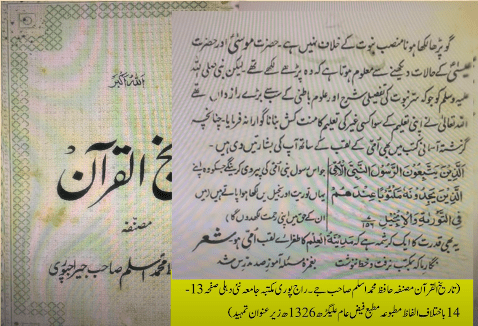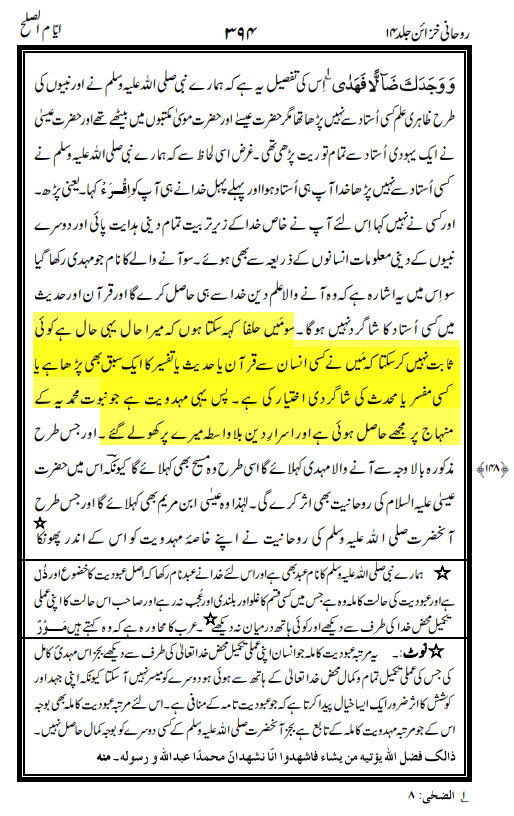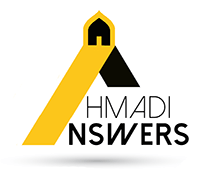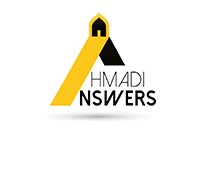Hadrat Musa (as) and Hadrat Isa (as) Studied?
One of the allegations raised by the anti-Ahmadis is that Hadrat Mirza Ghulam Ahmad (as) has written that Hadrat Isa (as) and Hadrat Musa (as) sat in libraries and that Hadrat Isa (as) learned the entire taurah from a Jewish teacher

The allegation is that Hadrat Ahmad (as) has lied here (God forbid) as he has himself said that the Prophets are taught by Allah. They ask for the references. There are two questions they are asking. The first question is provide the place in which they studied in. Otherwise, they are unlettered like the Prophet Muhammad (sa).
In the passage, Hadrat Ahmad (as) is saying that the spiritual treasures are taught by Allah but other things can be taught by teachers. As for the Prophet Muhammad (sa), he learned everything from Allah in terms of studying. Even the first ‘iqra’ was through angels. Our Prophet (sa) was unlettered which shows his superiority over all prophets. He was unlettered and yet became the teacher of all of mankind. Their allegation is not against us, rather against the Qur’an and Ahadith.
Regarding Hadrat Idris (as), it is written in Sahih Ibn Hibban that Idris (as) was the first Prophet to write with a pen.
:


Then in al-Bidayah wal-Nihayah, Ibn Kathir presents the same:


Then regarding Hadrat Ismail (as), it is written that when he came to Mecca, he did not know Arabic, but he learned Arabic from the people there.


Apart from the Prophet Muhammad (sa), the prophets studied and learned but the secrets of religion were always taught by Allah. About Hadrat Musa (as), it is proven that he knew how to read and write. The opponents ask for a reference:

In Acts Chapter 7 verse 22: Moses was educated in all the wisdom of the Egyptians and was powerful in Speech and action.
In the old Testament History by Wiliam Smith, he says that Musa (as) was taught about religion and he learned from the Egyptians and other literature as well.
This is from previous books. Now let us go to the Qur’an.
In Surah al-Kahf verse 67 Allah States:
قَالَ لَهُ مُوسَىٰ هَلْ أَتَّبِعُكَ عَلَىٰ أَنْ تُعَلِّمَنِ مِمَّا عُلِّمْتَ رُشْدًا
Moses said to him, ‘May I follow thee on condition that thou teach me of the guidance which thou hast been taught?’ (Chapter 18 Verse 67)
Hadrat Musa (as) said let me join you and learn from you. Khidr (as) first said no but then on the condition that he will not ask questions; he was given permission. One teacher his Maktab-e-Khidr.
Then the Shariah of Hadrat Musa (as) was in tablets. It is written:
وَكَتَبْنَا لَهُ فِي الْأَلْوَاحِ مِنْ كُلِّ شَيْءٍ مَوْعِظَةً وَتَفْصِيلًا لِكُلِّ شَيْءٍ فَخُذْهَا بِقُوَّةٍ وَأْمُرْ قَوْمَكَ يَأْخُذُوا بِأَحْسَنِهَا ۚ سَأُرِيكُمْ دَارَ الْفَاسِقِينَ
And We wrote for him upon the tablets about everything — an admonition and an explanation of all things. ‘So hold them fast and bid thy people follow the best thereof. Soon shall I show you the abode of the transgressors.’ (Chapter 7 Verse 146)
This shows that Hadrat Musa (as) knew how to read and write. He would keep the tablets with him. Allah States:
وَلَمَّا سَكَتَ عَنْ مُوسَى الْغَضَبُ أَخَذَ الْأَلْوَاحَ ۖ وَفِي نُسْخَتِهَا هُدًى وَرَحْمَةٌ لِلَّذِينَ هُمْ لِرَبِّهِمْ يَرْهَبُونَ
And when the anger of Moses was appeased, he took the tablets, and in their writing there was guidance and mercy for those who fear their Lord. (Chapter 7 verse 155)
It was not possible for him to understand them unless he had knowledge of reading and writing.
The Galilean Jewishness of Jesus mentions that the Jewish children were taught in these schools during those days.

Jews used to be taught in the schools. Then in the book Jesus Literacy, it is written:


We know that Hadrat Isa (as) was able to study. In Luke Chapter 4, verse 20, it is written:
“He went to Nazareth, where he had been brought up, and on the Sabbath day he went into the synagogue, as was his custom. He stood up to read, and the scroll of the Prophet Isaiah was handed to him. Unrolling it, he found the place where it is written:
“The Spirit of the Lord is on me, because he has anointed me to proclaim good news to the poor. He has sent me to proclaim freedom for the prisoners and recovery of sight for the blind to set the oppressed free, to proclaim the year of the Lord’s favor.”
Then he rolled up the scroll, gave it back to the attendance and sat down. The eyes of everyone in the synagogue were fastened on him” (Luke Chapter 4, verses 16-20)
Then in another book, the New Testament in Antiquity by Grey M Burge it is written:


Let us now turn to the commentaries, since these people reject Qur’an, ahadith and the historical records.
Hadrat Imam Fakhruddin al-Razi (rh) writes:
أَنَّهُ لَمْ يَكُنْ مِنْ أَهْلِ الْقِرَاءَةِ وَالْكِتَابَةِ فَلَوْ نَزَلَ عَلَيْهِ ذَلِكَ جُمْلَةً وَاحِدَةً كَانَ لَا يَضْبِطُهُ وَلَجَازَ عَلَيْهِ الْغَلَطُ وَالسَّهْوُ، وَإِنَّمَا نَزَلَتِ التَّوْرَاةُ جُمْلَةً لِأَنَّهَا مَكْتُوبَةٌ يَقْرَؤُهَا مُوسَى
“The Prophet Muhammad (sa) was not one of the people of reading and writing… and the torah was revealed in its entirety, because it was written and Musa (as) knew how to read and write” (Tafsir-e-Kabeer, vol. 24, p. 79)


Then Imam Baidawi (rh) explains why the Qur’an was revealed in small parts and not all together. He (rh) writes:
لأن حاله يخالف حال موسى وداود وعيسى حيث كان أميًا وكانوا يكتبون
“Because he (sa)’s condition was different than Musa, Dawud and Isa. He (sa) was unlettered while they knew how to read and write” (Tafsir al-Baidawi, vol. 4, p. 123)


The same is written in the book Tarikhul Qur’an by Hafiz Muhammad Aslam sahib. He writes:

He (as) used the word fuyooz -e-elahi and the spiritual treasures in his passage showing prophets only learn such from Allah. This is exactly what he (as) said that he (sa) is the only unlettered prophet who learned everything from Allah.
Through the allegation on Hadrat Ahmad (as), the anti-Ahmadis have once again rejected all Prophets of Allah.
The next allegation which also relates to this allegation is that Hadrat Ahmad (as) has written that he had no teachers and then has mentioned his teachers in other books. They quote the following references:
“And the reason for the name ‘Mahdi’ as has been narrated, is this that he will not take knowledge from scholars and will get guidance from God, just as the way God had given guidance to his Prophet Muhammad (sa), he had taken knowledge and guidance from God only.” (Najm-ul-Huda, Roohani Khazain vol.14 p.90)

He (as) then writes:
“Thus, the coming person was named Mahdi, and there is this hint in it that that coming person will get religious knowledge from God, and will not be a student of any teacher in Quran and Hadith. Thus I say it on OATH that this state is my state. No one can prove that I have studied even a chapter of Quran or Hadith or Tafseer from any human or have been a student of any Mufassir (Commentator of Quran) or Muhaddith (Expert of Hadith). Thus this the Mahdi-hood which I have attained on the pattern of Muhammadi prophethood. And secrets (i.e in-depth understanding) of religion have been unveiled to me directly (i.e without the help of worldly resources)” (Ayam-us-Sulh, Roohani Khazain vol.14 p.394)

This shows that Hadrat Ahmad (as) has claimed that he has not gained any of his religious knowledge from any scholar nor has he studied the Qur’an from any commentator and nor has he studied Ahadith from any muhadith. The secrets of the religion were opened up to him by Allah the Almighty.
Then the anti-Ahmadis quote the following reference:
“In childhood, my education was done in this manner that when I was 6,7 years old, a persian-speaking teacher was appointed for me who taught me Holy Quran and some persian books and the name of this teacher was Fazal Ilahi. And when my age was about 10 years, then an Arabic teacher was appointed for my education whose name was Fazal Ahmad ……. From him I read some books and the grammar. When I reached 17 or 18 years of age, I had the opportunity of receiving education from another Molvi Sahib, his name was Gul Ali Shah……. From this lastly mentioned Molvi Sahib I studied grammar and logic and Herbal Medicine (Hikmat).” (Kitab ul Bariyah, Roohani Khazain vol.13 p.180-181)


Hadrat Ahmad (as) has written that when he was still a young boy of six or seven, he had a teacher for Qur’an and some Persian books. The age shows this referred to simple reading of the Qur’an, not the commentaries he claimed Allah had taught him. When he was ten, he learned basic grammar and then at the age of seventeen or eighteen, he learned grammar, logic and herbal medicine. There is no mention of Qur’an and Ahadith.


